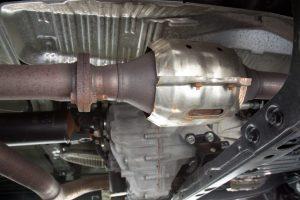Though car fires are not a common scene, they are surely scary to imagine. Though, you may not have witnessed even one car fire during your lifetime, except for in some lethal car crashes. The truth, however, is that car fires do take place, and they can be fatal. Not only old cars, but also the relatively new ones can fall prey to it. And once they do, there is hardly anything you can do to save your car. This is why you must look towards fire prevention. There are a lot of reasons behind car fires, which are not very obvious. Here we will discuss the top 6 of them.
Contents
Remember that prevention is the only way you can escape a car fire. Once a car catches fire, the only thing you can do is run as far away from it as possible. Also, urge everyone nearby to stay away, while you call the fire department.
Here, are top 6 risks that can set your car on fire.
SEE MORE:
- Ultimate Tips to Stay Away from Road Dangers
- Planning a New Car in September 2017? Here are the Best Days
Electrical Issues
Electrical wiring and points run through the entire length and breadth of the car. There is a possibility that one or more wires may fray. The risk is that if even of them does, there could be short circuit that could cause fire.

Car batteries are also very well capable of starting car fries. Batteries in hybrid cars are most prone to it. Hydrogen is produced in the engine bay by the battery’s charging cycle. Loose or faulty wiring coupled with the electrical charge can wreck havoc if the battery can create a spark. And, the hydrogen in the engine bay can aggravate it. If there are any fluid spills in the bay, the fire will only worsen.
Maintenance Tip: Be regular in getting your car serviced at scheduled dates and distances.
Overheated Engine
You may wonder how simply heat can set a car on fire. It may not do it singly, but in complicity with the heated internal fluids. An overheated engine is likely to boil the internal fluids to a dangerous level. This causes them to spill out of their containments. When they come in contact with the piping hot areas in the engine bay, sparks are likely to occur. Spreading fire in such cases is a not a far off possibility. There could be many reasons for engine overheating. So, keep you engine in good health by regular maintenance.
Leaking Fuel
This is one of the most common reasons for car fires. Fuel leaks may occur due to your negligence, but they can also occur due to internal reasons. Gasoline/petrol can quickly turn to flames due to a spark when above 45 degrees Fahrenheit and above. But, when at 495 degrees Fahrenheit, it can cause fire even without a spark or any external source of fire. When leaking fuel comes into contact with steaming hot car parts, you must expect flames immediately. Again, a proper maintenance schedule can help in car fire prevention.
Overheated Catalytic Converters

Catalytic converters are a vital part of the exhaust system. The exhaust system, contrary to what we may think, runs through the entire length of the car. In case there are more exhaust pollutants than the converters can handle, they will heat up. An indirect cause of this is an inefficient engine. When it doesn’t burn the fuel like it should, there is additional burden in the catalytic converters, resulting in overheating. When this happens over a long period of time, the risk increases. When the temperature goes beyond its limit, it can quickly burn the carpet and cabin insulation right through the metal.
Flaw in Design
If there is a flaw in design, chances are that the manufacturer will catch it before you do. When there is a flaw in design, it doesn’t mean that your car will blow up right away. It may keep fostering situations and conditions that ultimately lead to a fire. It is not necessary that every design flaw cause fire, but incidentally, most car recalls are because of car fire.
Shoddy Maintenance
If there is one lesson that we have learned from all the points above, except for the previous, it just one. Shoddy car maintenance can lead to car fires in more ways than one. Improper maintenance of any motor vehicle, in fact, can cause a lot of conditions in almost all the parts, ultimately fostering the risk of fire.
So, make one thing sure – keep your car maintenance schedule perfect to ensure fire prevention.



